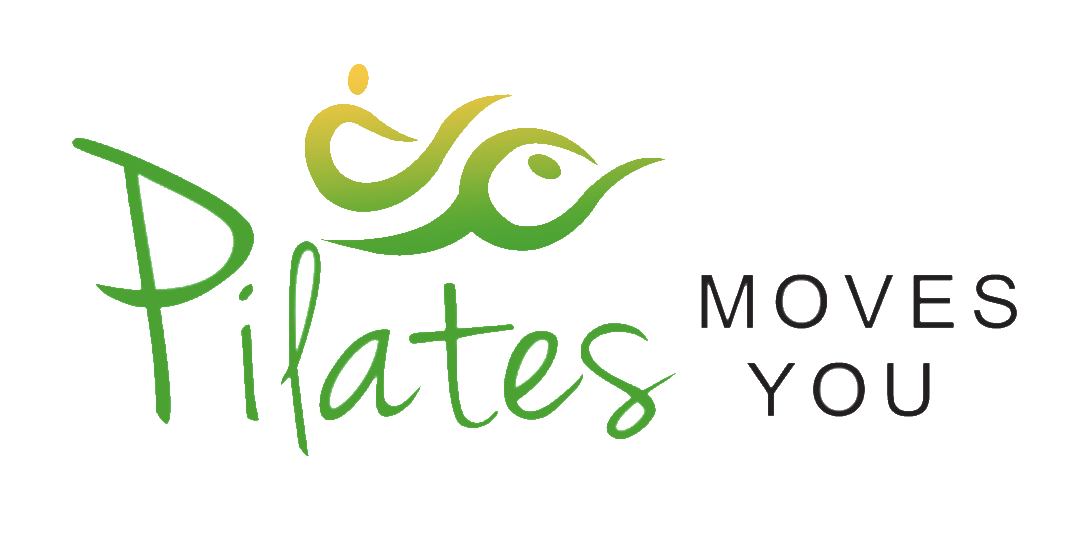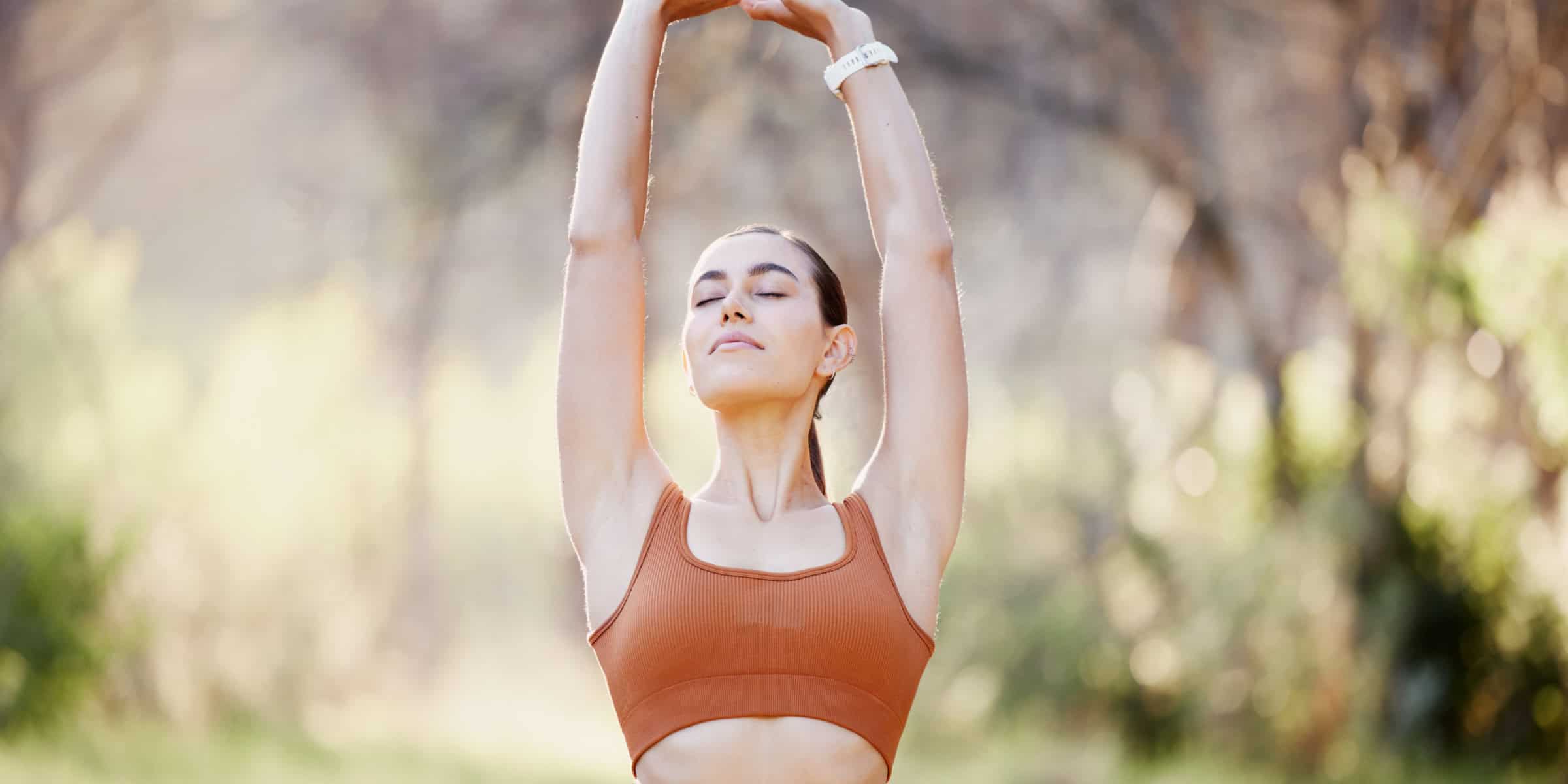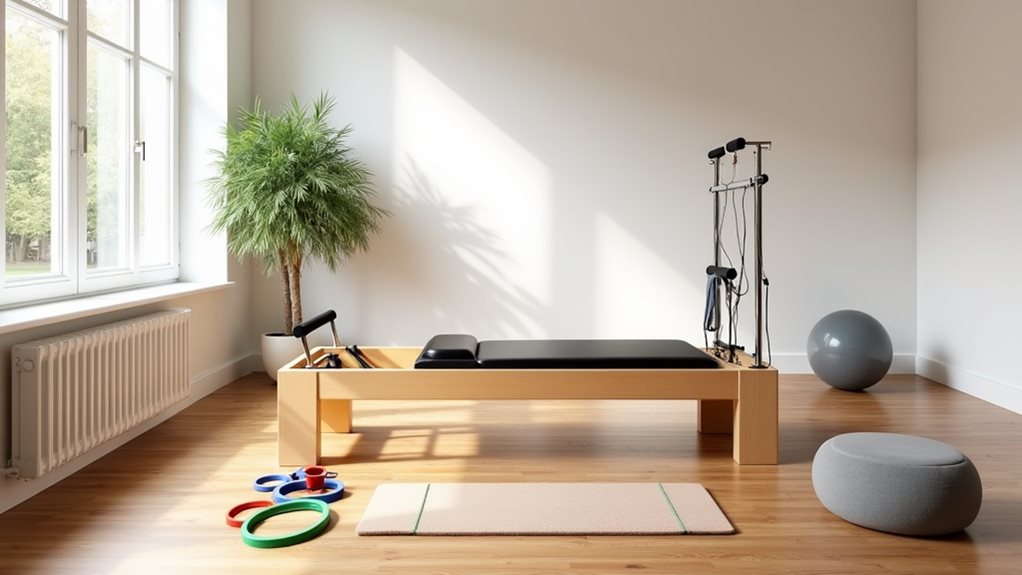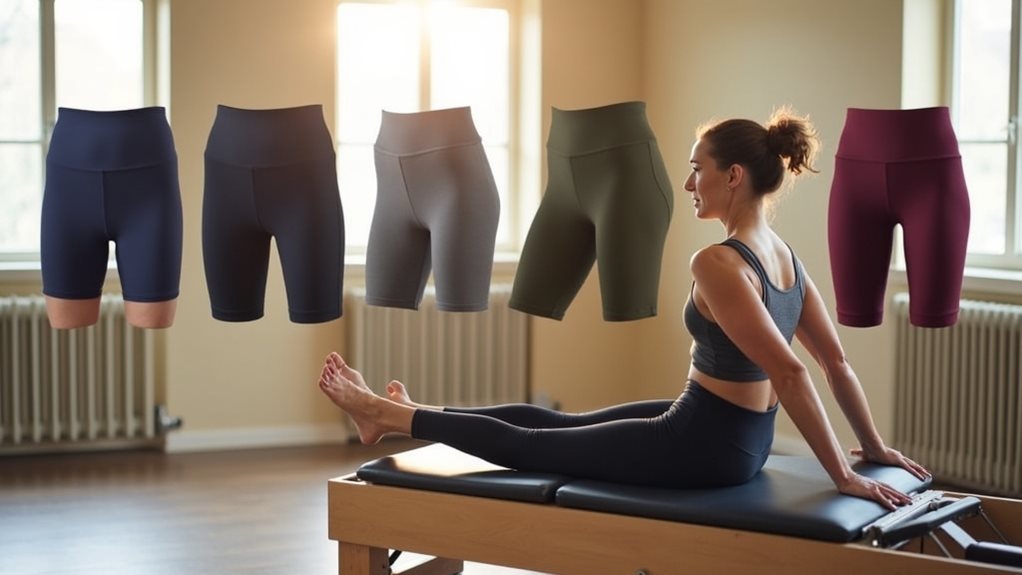Have you ever felt like your mind is running a mile a minute, leaving you feeling overwhelmed and stressed? If so, you’re not alone. Many of us struggle with managing our thoughts and emotions, especially during challenging times.
That’s where mindfulness comes in. By practicing mindfulness, we can learn to calm our minds and empower our lives. And one way to do that is through the practice of Pilates.
Pilates is a form of exercise that focuses on strengthening the body and improving flexibility, balance, and posture. But it’s not just about physical fitness. Pilates also emphasizes the mind-body connection, which means that it can help improve mental wellness too.
In this article, we’ll explore the mindfulness benefits of Pilates and how you can incorporate them into your daily routine to feel more grounded, focused, and resilient.
Key Takeaways
- Pilates can improve mental wellness by reducing stress and anxiety, enhancing cognitive function, and promoting relaxation through controlled movements and mindful breathing.
- Incorporating mindfulness practices, such as self-compassion, gratitude, and mindfulness meditation, can greatly enhance the benefits of Pilates for mental wellness.
- Focusing on breathwork and body awareness can prevent injury and ensure proper alignment during Pilates exercises, while also calming the mind and bringing awareness to the body’s movements.
- Consistent mindful Pilates practice can lead to a greater sense of peace, empowerment, and joy in daily life by shifting our perspective to one of abundance and cultivating self-awareness.
Understanding the Mind-Body Connection in Pilates
You’ll love how the mind-body connection in Pilates can help you feel more centered and aligned! Pilates is a mind-body exercise that emphasizes the importance of breath, control, and alignment. The Pilates philosophy focuses on the concept of mind-body awareness, which means being present in the moment and paying attention to the sensations in your body.
The mind-body connection in Pilates is essential for mental wellness. When you practice Pilates, you become more aware of your body and the movements you make. You learn to control your movements and breathe deeply, which helps to reduce stress and anxiety.
As you become more mindful of your body, you begin to connect with your inner self, and this connection can help you feel more centered and grounded.
Pilates is a powerful tool for improving your mind-body awareness and overall mental wellness. The Pilates philosophy emphasizes the importance of being present in the moment and paying attention to your body’s sensations.
When you practice Pilates regularly, you will improve your mental focus and concentration, which can help you in all areas of your life.
So, let’s explore how Pilates can help you improve mental focus and concentration!
Improving Mental Focus and Concentration
Let’s explore how Pilates can help us enhance our cognitive function and improve mental focus and concentration.
By incorporating mindful movements and breathing techniques, Pilates can reduce brain fog and mental fatigue. This helps us stay alert and focused throughout the day.
With regular practice, we can train our minds to stay present and focused, improving our overall mental wellness.
Enhancing Cognitive Function
By practicing Pilates regularly, we can improve our cognitive function and enhance our mental clarity. Pilates requires mental focus and concentration, which strengthens the connections in our brain and improves our memory retention.
Additionally, Pilates involves movements that require us to coordinate our body and mind, which enhances our cognitive flexibility and problem-solving abilities. As we practice Pilates, we also improve our ability to process information and make decisions quickly.
This is because Pilates movements require our brain to communicate with our muscles, which strengthens our neural pathways and improves our reaction time. Moreover, Pilates helps us reduce stress and anxiety, which are common causes of brain fog and mental fatigue.
By reducing these negative factors, we can improve our mental clarity and focus, which will allow us to be more productive and successful in our daily lives.
Reducing Brain Fog and Mental Fatigue
Feeling mentally drained and struggling with brain fog? Incorporating Pilates into your routine can help you improve your cognitive function and reduce mental fatigue, allowing you to think more clearly and be more productive in your daily life. The mind-body connection that Pilates promotes can help increase alertness and boost productivity by improving circulation and oxygen flow to the brain.
To better understand the benefits of Pilates for reducing brain fog and mental fatigue, take a look at the following table that outlines the key ways that Pilates can help improve cognitive function:
| Pilates Benefits | Cognitive Function |
|---|---|
| Improves circulation | Increases oxygen flow to the brain |
| Reduces stress and tension | Decreases mental fatigue |
| Enhances focus and concentration | Boosts productivity |
By incorporating Pilates into your daily routine, you can experience a significant reduction in mental fatigue and brain fog, allowing you to feel more alert and focused throughout the day. This increased productivity can help you achieve your goals and feel more empowered in your daily life. In the next section, we will explore how Pilates can help reduce stress and anxiety, further improving your mental wellness.
Reducing Stress and Anxiety
You can find relief from stress and anxiety by incorporating Pilates into your daily routine. Pilates is a mind-body exercise that promotes relaxation and mindfulness through controlled movements and mindful breathing. When we’re stressed or anxious, our bodies release cortisol, a hormone that triggers the fight or flight response. Pilates helps to lower cortisol levels and promote a sense of calmness in the body.
To reduce stress and anxiety through Pilates, try these techniques:
- Practice mindful breathing: Focus on your breath as you move through the exercises. Inhale deeply, filling your lungs with air, and exhale slowly, releasing tension and stress.
- Use relaxation techniques: Incorporate stretches and movements that promote relaxation, such as the spine stretch or the swan. These movements help to release tension in the body and promote a sense of calmness.
- Practice mindfulness: Pay attention to your body as you move through the exercises. Be present in the moment and focus on the movements, rather than worrying about the past or future.
- Incorporate meditation: After your Pilates session, take a few minutes to meditate. Sit in a comfortable position and focus on your breath, letting go of any stress or tension.
Incorporating these techniques into your Pilates practice can help to reduce stress and anxiety, promote relaxation, and improve overall mental wellness.
In the next section, we’ll explore how Pilates can promote mindful movement and physical wellbeing.
Promoting Mindful Movement
Get ready to experience a sense of harmony as you move through Pilates exercises with a focus on mindful movement. Pilates is a form of exercise that emphasizes the connection between the mind and body. By promoting body awareness and conscious movement, Pilates allows you to tap into your body’s natural abilities and improve your overall physical and mental wellbeing.
One of the keys to mindful movement in Pilates is incorporating breathing techniques. Deep, controlled breathing helps to calm the mind and reduce stress, while also providing oxygen to the muscles. By focusing on your breath and syncing it with your movements, you can create a sense of flow and ease in your practice.
This mindful approach to movement can also translate to everyday life, helping you to stay present and centered in the midst of daily stressors. In addition to promoting body awareness and conscious breathing, Pilates can also help to build strength and resilience. By challenging your body in a controlled and intentional way, you can develop inner strength and confidence that extends beyond the studio.
The mindfulness benefits of Pilates can help you to cultivate a sense of freedom and empowerment in all areas of your life, allowing you to live with more ease and joy.
Building Resilience and Inner Strength
Let’s talk about building resilience and inner strength by focusing on two key points:
- Developing a positive mindset involves changing the way we think about challenges and setbacks, allowing us to approach them with a more optimistic and proactive attitude.
- Cultivating self-compassion involves treating ourselves with kindness, understanding, and acceptance, even in difficult times.
By incorporating these practices into our daily lives, we can build the mental and emotional resilience needed to face life’s challenges with confidence and grace.
Developing a Positive Mindset
Developing a positive mindset through mindfulness practices, such as Pilates, can lead to a more fulfilling and joyful life. By incorporating positive self-talk and practicing mindfulness meditation, we can train our minds to focus on the present moment and let go of negative thoughts and emotions. This can help us to feel more optimistic, confident, and resilient in our daily lives.
To cultivate a positive mindset, it is important to first become aware of our thoughts and self-talk. We can then challenge negative self-talk and replace it with positive affirmations. Additionally, practicing mindfulness meditation can help us to become more aware of our thoughts and emotions without judgment, and to let go of any negative or distracting thoughts. By incorporating these practices into our routine, we can train our minds to focus on the present moment and develop a more positive and optimistic outlook on life.
Developing a positive mindset through mindfulness practices is just one step towards cultivating self-compassion. By learning to be kinder to ourselves, we can further improve our mental wellness and overall quality of life.
Cultivating Self-Compassion
You deserve to be kinder to yourself, and cultivating self-compassion can lead to a more fulfilling and joyful life.
Self-reflection is an important first step in cultivating self-compassion. It involves taking a step back from our thoughts and feelings to observe them objectively. Through self-reflection, we can identify when we’re being self-critical and challenge those negative thoughts with self-compassion.
Self-care practices are also essential in cultivating self-compassion. These practices can include anything that promotes physical, emotional, and mental well-being, such as getting enough sleep, eating healthy, and engaging in activities that bring us joy. By prioritizing self-care, we show ourselves that we value our own well-being and are worthy of love and care.
By cultivating self-compassion through self-reflection and self-care practices, we can develop a more positive and compassionate relationship with ourselves, leading to a more fulfilling and joyful life.
Practicing gratitude and mindful living can also greatly enhance our mental wellness. By focusing on the present moment and expressing gratitude for what we have, we can shift our perspective to one of abundance rather than lack. In the next section, we’ll explore how incorporating mindfulness into Pilates practice can promote mental wellness and empower our lives.
Practicing Gratitude and Mindful Living
Practicing gratitude and mindfulness in our daily lives can have a profound impact on our mental wellness. One way to cultivate gratitude is through journaling. Each day, take a moment to reflect on what you’re grateful for in your life. Write down at least three things that brought you joy or made you feel thankful. This simple act of focusing on the positive can shift your perspective and increase feelings of happiness and contentment.
Another way to incorporate mindfulness into your daily routine is through mindful breathing techniques. Take a few minutes each day to sit in a comfortable position and focus on your breath. As you inhale, imagine you’re breathing in calmness and peace. As you exhale, imagine releasing any tension or stress. This practice can help you become more present in the moment and reduce feelings of anxiety.
When we practice gratitude and mindfulness, we become more aware of our thoughts and emotions. We learn to recognize negative patterns and replace them with more positive ones. By incorporating these practices into our daily lives, we can cultivate a sense of inner peace and empowerment.
In the next section, we’ll explore how Pilates can be a powerful tool for incorporating mindfulness into our workouts.
Incorporating Mindfulness into Your Daily Routine
Transitioning from practicing gratitude and mindful living, we can further enhance our mental wellness by incorporating mindfulness into our daily routine. Mindfulness is about paying attention to the present moment without judgment, and it can be practiced in various ways, such as through mindful breathing and mindfulness meditation. By incorporating mindfulness into our daily routine, we can develop a greater sense of inner calm and empower ourselves to live more fulfilling lives.
One way to incorporate mindfulness into our daily routine is through mindful breathing. This involves taking slow, deep breaths and focusing our attention on the sensation of breathing. We can do this for a few minutes each day, whether it’s in the morning before starting our day or in the evening before going to bed. Mindful breathing can help us reduce stress and anxiety, improve our focus and concentration, and promote a greater sense of relaxation.
Another way to incorporate mindfulness into our daily routine is through mindfulness meditation. This involves sitting in a comfortable position, closing our eyes, and focusing our attention on our breath or a specific object. We can start with just a few minutes of meditation each day and gradually increase the duration as we become more comfortable with the practice. Mindfulness meditation can help us cultivate a greater sense of self-awareness, reduce negative thoughts and emotions, and improve our overall well-being.
| Benefits of Mindful Breathing | Benefits of Mindfulness Meditation | Tips for Incorporating Mindfulness |
|---|---|---|
| Reduces stress and anxiety | Cultivates self-awareness | Start with just a few minutes |
| Improves focus and attention | Reduces negative thoughts | Set a regular time and place |
| Promotes relaxation | Improves overall well-being | Use guided meditations or apps |
| Can be done anywhere, anytime | Can be done anywhere, anytime | Focus on the present moment |
By incorporating mindfulness into our daily routine, we can enhance our mental wellness and develop a greater sense of inner calm. Mindful breathing and mindfulness meditation are just two ways to practice mindfulness, and there are many other techniques to explore. As we continue to cultivate mindfulness in our daily lives, we can empower ourselves to live more fulfilling lives and find greater freedom in the present moment.
Transitioning into the next section, finding a mindful Pilates practice that works for you can provide a powerful tool for integrating mindfulness into your daily routine.
Finding a Mindful Pilates Practice That Works for You
Discovering the perfect Pilates practice for your needs can be a powerful tool in integrating mindfulness into your daily routine. When choosing a mindful Pilates practice, it’s important to consider creating space and finding balance in both your mind and body.
It’s important to find a practice that aligns with your goals and intentions, whether that be through a group class or a personalized session with a trained professional. Breathwork and body awareness are two foundational aspects of a mindful Pilates practice.
Focusing on your breath can help calm the mind and bring awareness to your body’s movements. This allows you to connect with your body on a deeper level, becoming more present in the moment. Additionally, body awareness can help prevent injury and ensure proper alignment during exercises.
Incorporating a mindful Pilates practice into your daily routine can have a significant impact on your mental wellness. By choosing a practice that works for you, you can create a space for yourself to focus on your breath, body, and mind. This can help you find balance and increase your overall sense of well-being.
With consistent practice, you may notice a greater sense of peace and empowerment in your daily life.
Conclusion
In conclusion, incorporating mindfulness into our Pilates practice can have numerous benefits for our mental wellness. By focusing on the mind-body connection, we can improve our mental focus and concentration, reduce stress and anxiety, and promote mindful movement. Pilates can also help us build resilience and inner strength, and practice gratitude and mindful living.
To incorporate mindfulness into our daily routine, we can start by setting an intention before each Pilates session, such as focusing on our breath or being present in the moment. We can also try incorporating mindfulness into other areas of our life, such as taking mindful walks or practicing gratitude journaling. The key is to find a mindful Pilates practice that works for us and to make it a consistent part of our routine.
With practice and dedication, we can calm our minds, empower our lives, and improve our overall mental wellness.




